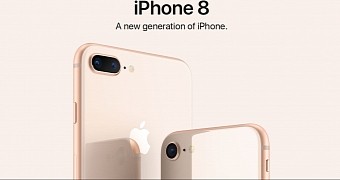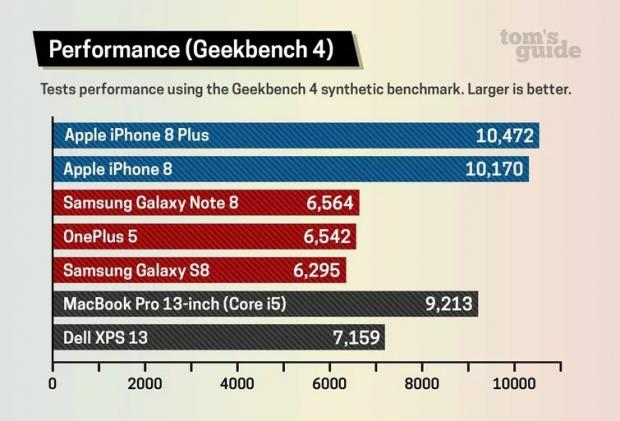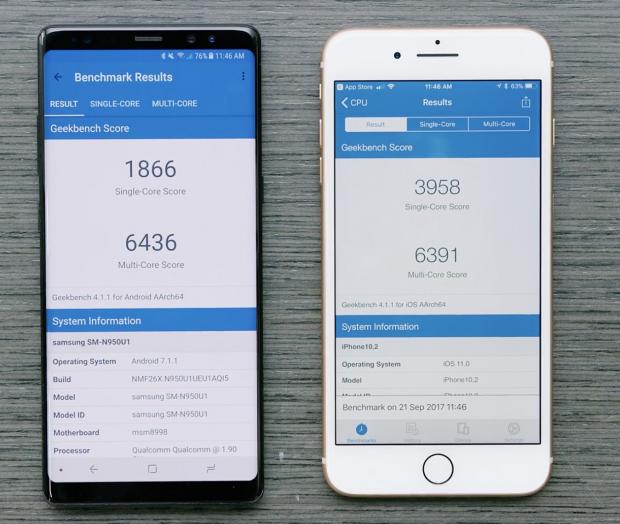The latest iPhone 8 comes with the new A11 Bionic processor, and from the first benchmarks, it looks like it’s much more powerful than any of the current processors available for Android, which looks a little bit suspicious.
The mobile platforms are now all about processing power, but there is only so much that you can cram into a small device. There is also the constraint of the battery, which doesn’t allow for much leeway. A compromise between the processing power and the battery capacity must be enforced.
This is one of the main reasons why the mobile processors don’t seem to jump too much in performance from one generation to another. From the looks of it, the new A11 Bionic processor in the latest iPhone 8 broke the stalemate and is now much more powerful than the previous generation, and than anything that Android devices have to offer.
Processors in Android phones are now lagging behind
The first benchmarks for iPhone 8 have started to land, and the difference in processing power seems to be a huge one. It’s not clear how they managed to pull it off, but Apple definitely has the advantage right now, if we take a look at the benchmark results from Tom’s Guide.
Three different tests were conducted, in Geekbench 4, 3DMark, and a 4K export from an editing software. In Geekbench and 3DMark, the iPhone 8 and iPhone 8+are almost twice as powerful as Samsung Galaxy Note 8 and Galaxy S8+, and in the case of the 4K export, the iPhones were almost four times better. You can check out in the full review scores in Tom’s Guide benchmarks, and the official benchmark scores provided by Geekbench itself.
Not everyone is getting the same scores
What’s interesting is that the scores differ somewhat from one benchmark to another. Another popular reviewer on YouTube, Marques Brownlee, got much lower scores that are on par with the current generation of Samsung S8 and Galaxy Note 8.
From the looks of it and from what users are reporting, Marques might be using a slightly older version of Geekbench 4. Assuming that is true, this raises a very important issue. Just how many apps are going to take advantage of the processor? Are developers going to rush in and quickly optimize their apps?
There is also another problem that's been present on the Windows platform for a long time. Back in the day, when benchmarks were really important, video card manufacturers were optimizing their hardware to run much better in these apps. Is it possible Apple is doing the same?
Apple is changing the landscape. Or is it?
What the new scores are showing is that Apple managed to combine an increase in power with battery management. Now, the latest Snapdragon processors that power the Android devices seem inadequate, and Qualcomm really needs to step up its game.
It leaves users with a very important question. What’s more likely? Did Apple optimized their hardware to run better in benchmarks, or the company managed to build a processor that’s twice as fast as anything on the market?
This conundrum will be solved soon when customers get their hands on the new iPhone 8 and run all sorts of benchmarks and real-world tests. It’s the only way to determine if Apple optimized or their processors are that good.

 14 DAY TRIAL //
14 DAY TRIAL // 




